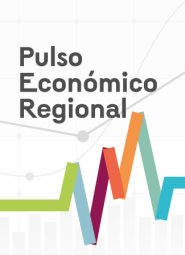The Center for Regional Economic Studies (CEER in Spanish) Prepares to Celebrate its 25th Anniversary
The Center for Regional Economic Studies (CEER in Spanish) was established in 1997 to decentralize the country’s economic research, specializing in topics related to regional and urban economics and economic and business history.
On Thursday, September 15, the celebration of its 25th anniversary will take place with a seminar that will be hosted by the Governor of Banco de la República (the Central Bank of Colombia), Leonardo Villar, with the participation of researchers, academics, representatives of ECLAC, CAF (development bank of Latin America), and the universities Uninorte in Barranquilla, Eafit in Medellín, and Rosario and Javeriana in Bogotá.
The seminar will be held at the Bartolomé Calvo Library in Cartagena, beginning at 3:00 p.m. and will have three important discussions. First 'Avance y retos de los estudios regionales y urbanos en Colombia' (Progress and challenges of regional and urban studies in Colombia), moderated by Bibiana Taboada, co-director of Banco de la República, and will include Karina Acosta from CEER, Eduardo Haddad from the University of Sao Paulo (USP), Juan Carlos Duque from Universidad Eafit, and Guillermo Sinisterra from Universidad Javeriana.
At around 4:00 p.m. there will be a discussion on ' Impacto del CEER en los estudios regionales y urbanos en Colombia' (CEER's impact on regional and urban studies in Colombia'), with the participation of Paula Moreno from Fundación Manos Visibles, Antonio Celia from the London School of Economics (LSE), Oriana Álvarez from Fundesarrollo, and Olga Lucía Acosta from ECLAC.
Finally, at 6:00 p.m., the conversation ' El CEER desde el lente de sus directores' (CEER from the lens of its directors) will be held by Adolfo Meisel from Universidad del Norte and Jaime Bonet from CEER. Sergio Diaz Granados, president of CAF - Development Bank of Latin America, will give the closing remarks.
In this quarter century, CEER has contributed to the generation of knowledge by developing and disseminating high-impact regional and urban research on economic, historical, and social issues. It has also helped to promote a better understanding of local dynamics, which undoubtedly helps to propose solutions to the problems identified in the Colombian regions. Following the success of this experience, the Bank opened research centers in Medellin, Cali, and Bucaramanga.





























































